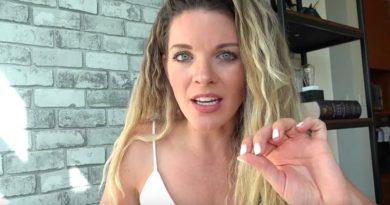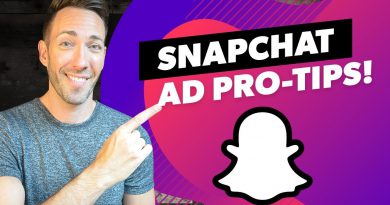How to Rank Smaller Websites on Google in 2020 – FAST Method for Non-Techies
You see all these big sites dominating Google, but, hey, we’re not all big sites, we’re not all billion-dollar companies. What happens if we have a small website with little to no backlinks, very little content? Is it even possible for us to get rankings on Google? Today I’m going to break down how to rank smaller websites fast in Google in 2020.
RESOURCES & LINKS:
____________________________________________
How to Do SEO For A Tiny Site With No Backlinks : https://youtu.be/Y772PSqmudo
How to Leverage Content Marketing When You Have No Traffic (Small or New Websites) : https://youtu.be/DGaYx22GXNw
Ranking 1-Page Websites in Google for Fun & Profit [article]: https://gaps.com/one-page-google/
____________________________________________
Look, here’s something that you may not know. Google’s diversity update in June 2019 gave different types of sites more opportunities to rank by limiting the number of times a single domain can appear in a single SERP.
A single website can’t rank more than two times in a SERP. That excludes branded key terms, of course. But this allows smaller sites to have a chance to rank among the big dogs like Amazon, or Microsoft, or whoever else it may be that’s dominating the SERPs.
So, how do you go out there and rank your new site that’s small, really high, at a quick time period?
Well first off, you can start with exact-match domain name.
Now a lot of people say exact-match domain names don’t work as well as they used to, and that’s correct, but they still do. Now creating a domain that’s a exact match to the service or product you’re selling is a great way to get some traction in the SERPs.
This works specifically well for localized keywords and long-tail keywords. It doesn’t work well for head terms. If your site gets a little traffic, scoring an exact-match domain name could get you a spot really high up in the SERPs.
Gaps.com did a study on exact-match domain names for one-page sites. They tested multiple exact-match domain names and created small sites for those domains. And this is what they found.
The next thing that you can do is build one-on-one engagements with customers.
Where big brands often tend to ignore is small things like personal engagements with their customers. This is how I compete with really large companies. You’ll see that I respond to comments on NeilPatel.com, YouTube, Facebook, LinkedIn, even Instagram. I’m pretty much everywhere, why? Because I care about you and I care about your success.
And, just doing that more personal approach will start gaining you those social signals, which will help you with your search engine rankings.
Next, I want you to focus on long-tail keywords.
Focus on the less competitive key terms that big brands typically ignore. Focusing on long-tail keywords is a great way to find high-quality traffic. Since long-tail keywords are typically more specific in nature, scoring them typically generates more leads, more sales, more conversions.
Now, if you’re looking for these long-tail keywords, the easiest way to find them is you go to Ubersuggest, you type in a keyword that’s a head term, and it’ll show you in the keyword ides report all the long-tail variations, and even other head term variations of that keyword.
Next, I want you to create valuable specialty content in your niche.
Did you know that Google prefers niche sites over broad sites? Since your site is a smaller site, you can have a complete focus on your specialty and niche. This will help you do better than your competition. This allows you to provide more value for your users in your content, which is often ignored by those larger companies. You can become the credible go-to source for anything in your vertical. Just look at Backlinko.com.
Brian Dean is known as the link guy in the SEO industry. He’s really gotten niche specific. Sure he does more than that, and he’s smart, and he’s an amazing guy, I’ve known him for years, but taking that niche was really smart by him.
This allows you to offer more value than any broad site out there, which then, in turn, helps with your rankings in the long run. Next, you want to make your site mobile-friendly. I can’t reiterate this enough.
Google has mobile-first indexing, and over 50% of the searches are now done on mobile devices. So having your site optimized for mobile devices is huge. If you’re not doing this, you’re not going to do well. So make sure your site’s responsive, and it loads fast.
► If you need help growing your business check out my ad agency Neil Patel Digital @ https://neilpateldigital.com/
►Subscribe: https://goo.gl/ScRTwc to learn more secret SEO tips.
►Find me on Facebook: https://www.facebook.com/neilkpatel/
►On Instagram: https://instagram.com/neilpatel/
#SEO #NeilPatel #DigitalMarketing





